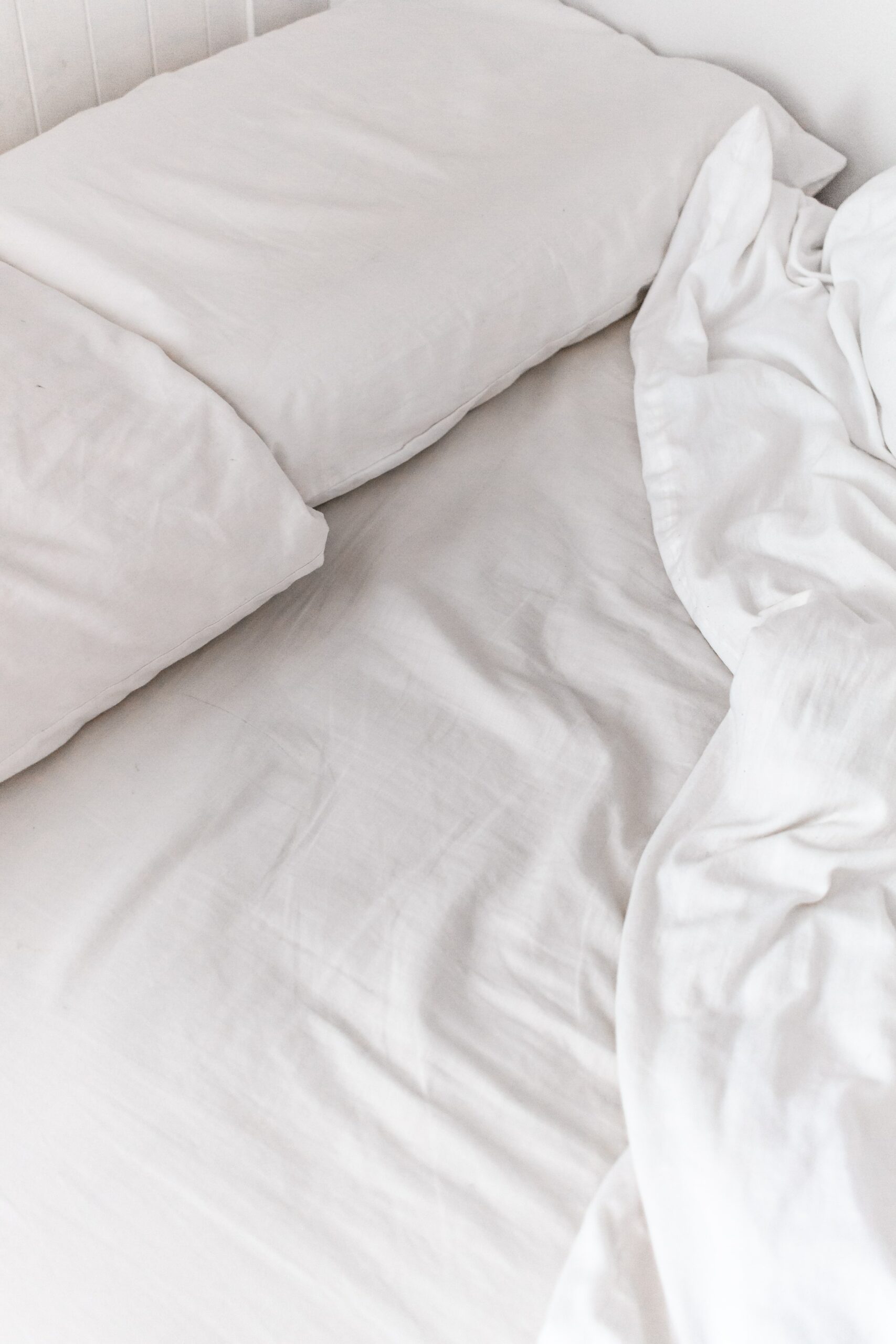Mastering the art of getting a good night’s sleep has never been more challenging. Whether it’s because our minds are racing with endless thoughts from the day or our body temperature doesn’t feel quite right, many of us are suffering from frequent restless nights. In fact, a recent study revealed that 71% of UK adults do not have the recommended seven to nine hours of sleep a night.
Sleep deprivation not only has the power to negatively affect our mood and productivity levels but is also linked to a range of adverse health outcomes such as increased heart problems and chronic diseases such as diabetes and dementia. Therefore, getting enough sleep is crucial as it helps us stay healthy and alert. So, perhaps it’s time to change our approach towards sleep to achieve the much-needed rest our bodies deserve.
In this blog, and across our National Sleep Awareness Month series, we’ll be touching upon the importance of good sleep hygiene. But what is sleep hygiene exactly? According to the NHS, the term sleep hygiene is used to describe ‘healthy habits that you can practise during the day to help you get a good night’s sleep’. This includes building good sleep routines, acknowledging how our behaviours during the day play a part in how we sleep at night, and, as this blog explains, how to create the right environment for sleep. Luckily, great sleep hygiene is easy to achieve if you know how. But where to start? Here are some top tips for curating the perfect environment for sleep:
Adjust Your Bedroom Lighting
The lighting of your bedroom affects the quality of your sleep. From a scientific point of view, light plays a central role in regulating our circadian rhythm (the body’s internal clock), which signals when we need to be alert and when we need to rest. Light can also affect the way our bodies produce melatonin, which is considered an essential sleep-promoting hormone. Therefore, reducing the light exposure in your bedroom can aid in a better night’s sleep.
In preparation for a good night’s sleep, try turning down the lights in your bedroom at least 2 hours before you intend to go to bed. This can be achieved by having a night light, or any warm tone lighting that isn’t bright, as this may disturb your body’s internal clock. If your nighttime environment is too bright, even with all the lights off, try investing in blackout curtains or an eye mask to help you doze off into a deep and peaceful slumber instead.
Bedtime Mindfulness
Relaxing and unwinding your mind before you go to sleep is key to getting a good night’s rest. This can be achieved by practising mindfulness techniques such as meditation or breathing exercises at least an hour before you go to bed. Besides the positive benefits to your mental health and wellbeing, practising meditation before you drift off into the land of dreams, enables your mind to feel grounded and helps to release any lingering thoughts from the day that may prevent you from falling asleep. Similarly, practising breathing exercises such as box breathing, works to calm your nervous system down by distracting your mind as you count to four, and helps your mind, body and soul relax to achieve the perfect night’s sleep.
Build A Sleep Routine
Research suggests that keeping a consistent sleep schedule can improve the quality of our sleep and overall health. Going to bed at the same time every night helps us maintain our body’s internal clock, so we can fall asleep and wake up easily. According to sleep medicine physician Dr. Carolina Marcus, in doing so can also lower the risk of heart disease because our heart rate, blood pressure and other cardiovascular functions follow circadian patterns and if out of sync, can result in health issues. In addition to this, try reading a book (preferably something light, like fiction) before you go to sleep. The simple act of opening a book and reading a few pages before you go to bed can help your mind unwind and relax. Alternatively, taking a hot shower before bed can also be a relaxing ritual to implement within your sleep routine.


